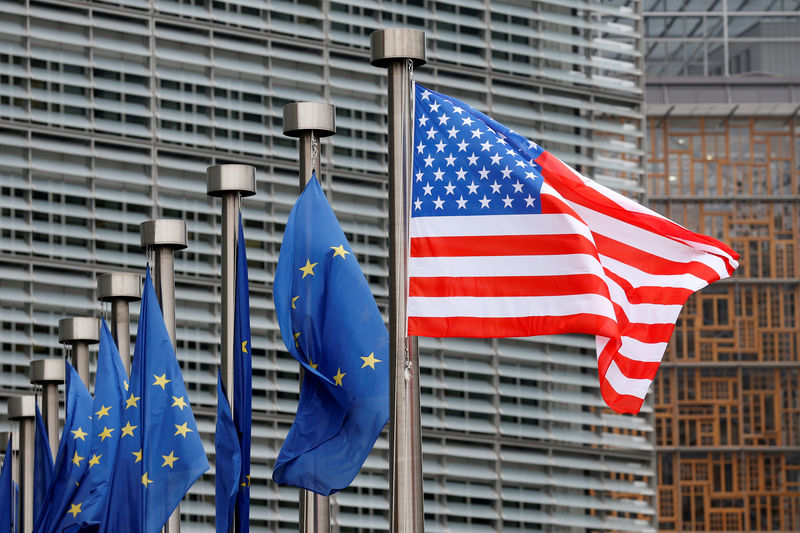By Philip Blenkinsop
GENEVA (Reuters) - The European Union argued on Monday for the withdrawal of tariffs imposed by U.S. President Donald Trump on metal imports in one of the most high-profile and potentially explosive cases to come to the World Trade Organization (WTO).
Trump set duties in 2018 of 25% on incoming steel and 10% on aluminium under a 1962 U.S. law that allows the president to restrict imports on grounds of national security.
The measures spurred nine complaints to the WTO from steel-exporting countries including China, India, Russia and Turkey. Canada and Mexico have since terminated their cases after agreeing an updated free trade pact with the United States.
EU and U.S. officials presented arguments on Monday before a three-person panel of adjudicators from Uruguay, Chile and the Philippines. The case hinges on the exemption from global trade rules the WTO allows in cases of national security.
The central U.S. argument is that national security is for countries themselves to judge and certainly not something to be assessed by a three-person WTO panel in Geneva.
"If the U.S. lose the case, Donald Trump will be very angry," a diplomat from one of the complainant countries said.
The WTO panel, which is handling all seven cases, has said it will not deliver rulings before the final quarter of 2020, which means they may come after the U.S. presidential election on Nov. 3.
EU counsel James Flett said the case was high-profile but also "straightforward" and that the tariffs, rather than protecting U.S. security, were designed "to make America rich again".
The measures were also a "safeguard", which under WTO rules should be imposed only in response to an increase in imports and this was not the case for all metal grades.
The U.S. legal team said the European Union had previously argued that national security was "self-judging", such as for sanctions during the Falklands War and U.S. intervention in Nicaragua in the 1980s.
"Truly, the change in the EU position is a mystery," one of its lawyers said.
However, a WTO panel in April did rule on national security and said Russia's restrictions on road and rail transport from Ukraine were lawful because of the emergency in relations between the two.

The national security exemption will also feature in WTO cases brought by Qatar against Bahrain, the United Arab Emirates and Saudi Arabia and by South Korea over Japanese export restrictions.